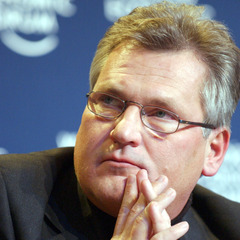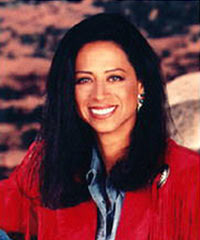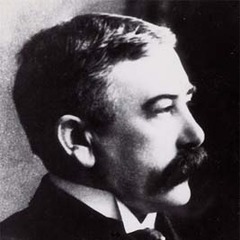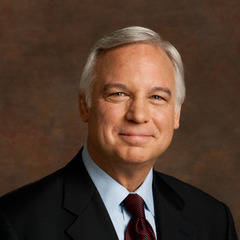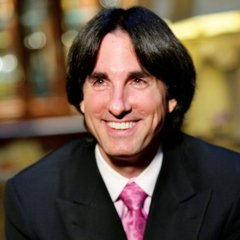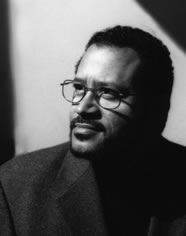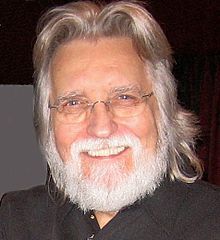Deborah Tannen quotes
-
“The biggest mistake is believing there is one right way to listen, to talk, to have a conversation - or a relationship.”
-- Deborah Tannen -
“Communication is a continual balancing act, juggling the conflicting needs for intimacy and independence. To survive in the world, we have to act in concert with others, but to survive as ourselves, rather than simply as cogs in a wheel, we have to act alone.”
-- Deborah TannenSource : Deborah Tannen (2013). “You Just Don't Understand: Women and Men in Conversation”, p.27, Harper Collins
-
“For most women, the language of conversation is primarily a language of rapport: a way of establishing connections and negotiating relationships.”
-- Deborah Tannen -
“We all know we are unique individuals, but we tend to see others as representatives of groups.”
-- Deborah TannenSource : Deborah Tannen (2013). “You Just Don't Understand: Women and Men in Conversation”, p.15, Harper Collins
-
-
“The key to conversation at work is flexibility and understanding how what you say might be perceived by others.”
-- Deborah Tannen -
“Some days you just want to get dressed and go about your business. But if you're a woman, you can't, because there is no unmarked woman.”
-- Deborah Tannen -
“[T]he seeds of [the Argument Culture] can be found our classrooms, where a teacher will introduce an article or an idea . . . setting up debates where people learn not to listen to each other because they're so busy trying to win the debate.”
-- Deborah Tannen -
“When people realize that in the long run you may be turning off the audiences more, even though they will look temporarily--in the end they turn away, we really need to develop other metaphors and not talk about two sides, but talk about all sides.”
-- Deborah Tannen -
-
“When those closest to us respond to events differently than we do, when they seem to see the same scene as part of a different play, when they say things that we could not imagine saying in the same circumstances, the ground on which we stand seems to tremble and our footing is suddenly unsure.”
-- Deborah Tannen -
“Critiquing relieves you of the responsibility of doing integrative thinking.”
-- Deborah TannenSource : Deborah Tannen (1998). “The Argument Culture: Moving from Debate to Dialogue”, Random House Incorporated
-
“The desire for freedom and independence becomes more of an issue for many men in relationships, whereas interdependence and connection become more of an issue for many women.”
-- Deborah TannenSource : Deborah Tannen (2013). “You Just Don't Understand: Women and Men in Conversation”, p.40, Harper Collins
-
“Though all humans need both intimacy and independence, women tend to focus on the first and men on the second. It is as if their lifeblood ran in different directions.”
-- Deborah TannenSource : Deborah Tannen (2013). “You Just Don't Understand: Women and Men in Conversation”, p.26, Harper Collins
-
-
“If women are often frustrated because men do not respond to their troubles by offering matching troubles, men are often frustrated because women do.”
-- Deborah Tannen -
“Many women feel it is natural to consult with their partners at every turn, while many men automatically make more decisions without consulting their partners.”
-- Deborah Tannen -
“Cooperation isn't the absence of conflict but a means of managing conflict.”
-- Deborah Tannen -
“We tend to look through language and not realize how much power language has”
-- Deborah Tannen -
-
“Words can be like weapons of destruction: It takes so much effort, and the cooperation of so many people, to build something - and so little effort of so few to tear it down.”
-- Deborah TannenSource : Deborah Tannen (2012). “The Argument Culture: Moving from Debate to Dialogue”, p.82, Ballantine Books
-
“False dichotomies are often at the heart of discord.”
-- Deborah Tannen -
“Communication is a continual balancing act, juggling the conflicting needs for intimacy and independence”
-- Deborah Tannen -
“But if you parry individuals points - a negative and defensive enterprise - you never step back and actively imagine a world in which a different system of ideas could be true - a positive act.”
-- Deborah Tannen -
-
“To say anything about women and men without marking oneself as either feminist or anti-feminist, male-basher or apologist for men seems as impossible for a woman as trying to get dressed in the morning without inviting interpretations of her character. Sitting at the conference table musing on these matters, I felt sad to think that we women didn't have the freedom to be unmarked that the men sitting next to us had. Some days you just want to get dressed and go about your business. But if you're a woman, you can't, because there is no unmarked woman.”
-- Deborah Tannen -
“Treating people the same is not equal treatment if they are not the same.”
-- Deborah Tannen -
“Each underestimates her own power and overestimates the other's”
-- Deborah Tannen -
“all communication is more or less cross-cultural. We learn to use language as we grow up, and growing up in different parts of the country, having different ethnic, religious, or class backgrounds, even just being male or female - all result in different ways of talking ...”
-- Deborah TannenSource : Deborah Tannen (1986). “That's not what I meant!: how conversational style makes or breaks your relations with others”, William Morrow & Co
-
-
“any criticism heard secondhand sounds worse than it would face to face. Words spoken out of our presence strike us as more powerful, just as people we know only by reputation seem larger than life.”
-- Deborah Tannen -
“In an ongoing relationship, each current criticism packs the punches of all the others that have gone before.”
-- Deborah Tannen -
“All conversation, in addition to whatever else it does, displays, and asks for recognition of, our competence.”
-- Deborah Tannen -
“The one who decides who goes ahead has the upper hand, regardless of who gets to go. This is why many women do not feel empowered by such privileges as having doors held open for them. The advantage of going first through the door is less salient to them than the disadvantage of being granted the right to walk through a door by someone who is framed, by his magnanimous gesture, as the arbiter of the right-of-way.”
-- Deborah Tannen -
-
“To say that a person feels listened to means a lot more than just their ideas get heard. It's a sign of respect. It makes people feel valued.”
-- Deborah Tannen -
“The argument culture urges us to approach the world - and the people in it - in an adversarial frame of mind. It rests on the assumption that opposition is the best way to get anything done: The best way to discuss an idea is to set up a debate; the best way to cover news is to find spokespeople who express the most extreme, polarized views and present them as 'both sides'; the best way to settle disputes is litigation that pits one party against the other; the best way to begin an essay is to attack someone; and the best way to show you're really thinking is to criticize.”
-- Deborah Tannen -
“Public discourse requires making an argument for a point of view, not having an argument - as in having a fight.”
-- Deborah TannenSource : Deborah Tannen (2012). “The Argument Culture: Moving from Debate to Dialogue”, p.4, Ballantine Books
-
“In dialogue, there is opposition, yes, but no head-on collision. Smashing heads does not open minds.”
-- Deborah TannenSource : Deborah Tannen (2012). “The Argument Culture: Moving from Debate to Dialogue”, p.26, Ballantine Books
-
-
“Each person's life is lived as a series of conversations.”
-- Deborah TannenSource : Deborah Tannen (2013). “You Just Don't Understand: Women and Men in Conversation”, p.13, Harper Collins
-
“Part of the reason images of women in positions of authority are marked by their gender is that the very notion of authority is associated with maleness.”
-- Deborah Tannen -
“Relationships are made of talk - and talk is for girls and women.”
-- Deborah Tannen -
“Like most men, my father is interested in action. And this is why he disappoints my mother when she tells him she doesn't feel well and he offers to take her to the doctor. He is focused on what he can do, whereas she wants sympathy.”
-- Deborah Tannen -
-
“More men feel comfortable doing "public speaking," while more women feel comfortable doing "private" speaking.”
-- Deborah Tannen -
“The chivalrous man who holds a door open or signals a woman to go ahead of him when he's driving is negotiating both status and connection.”
-- Deborah Tannen -
“Girls are not accustomed to jockeying for status in an obvious way; they are more concerned that they be liked.”
-- Deborah Tannen -
“Many men honestly do not know what women want, and women honestly do not know why men find what they want so hard to comprehend and deliver.”
-- Deborah TannenSource : "You Just Don't Understand: Women and Men in Conversation". Book by Deborah Tannen, www.newyorker.com. 1990.

-
-
“Male-female conversation is cross-cultural communication”
-- Deborah TannenSource : Deborah Tannen (2013). “You Just Don't Understand: Women and Men in Conversation”, p.42, Harper Collins
-
“It's our tendency to approach every problem as if it were a fight between two sides. We see it in headlines that are always using metaphors for war. It's a general atmosphere of animosity and contention that has taken over our public discourse.”
-- Deborah Tannen -
“Saying that men talk about baseball in order to avoid talking about their feelings is the same as saying that women talk about their feelings in order to avoid talking about baseball.”
-- Deborah Tannen -
“It can be the best of relationships and the worst of relationships - often at the same time. The bond between a mother and daughter is one of the strongest, but it's also among the most complicated.”
-- Deborah Tannen -
You may also like:
-
Aleksander Kwasniewski
Former President of Poland -
Barbara De Angelis
Author -
Carol Gilligan
Psychologist -
Edward Sapir
Anthropologist -
Erving Goffman
Sociologist -
Gary Chapman
Author -
George Lakoff
Linguist -
Jack Canfield
Author -
John Gray
Author -
John Frederick Demartini
Author -
John M. Gottman
Professor -
Madeleine Albright
Former United States Secretary of State -
Mark Victor Hansen
Author -
Michael Eric Dyson
Author -
Neale Donald Walsch
Author -
Noam Chomsky
Linguist -
Robin Lakoff
Professor -
William Labov
Professor
